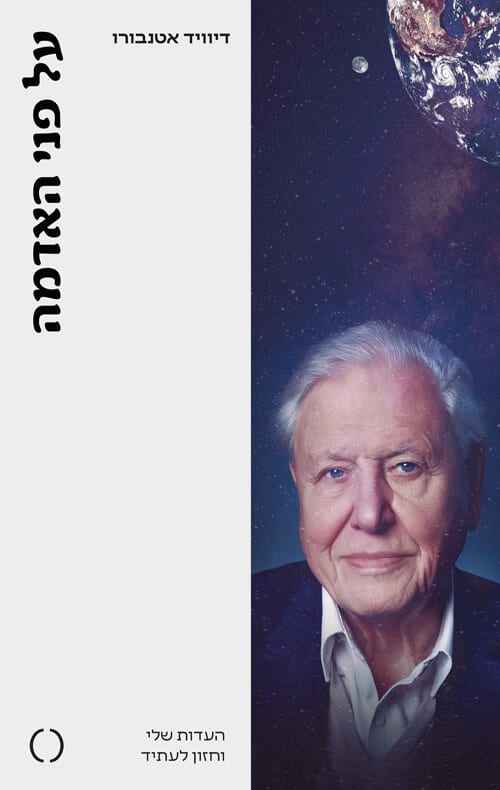Three books from the past year offer us three different ways to fight the climate crisis. So what is the right way?
Gideon Bacher, Angle - Science and Environment News Agency
From Pakistan the flooded, Through the floods In Nigeria and the severe droughts In China וin Europe Committee to the mighty hurricane Ian In the United States, the recognition that the climate crisis is already here in full force is painfully penetrating the consciousness of the world's decision makers. With it, the search for applicable, practical and efficient solutions increases, both for reducing greenhouse gas emissions and for building resilience and adapting to the great crisis. The doubts and questions about what needs to be done and what is possible now are multiplying and becoming a real existential necessity.
In this context, three excellent books translated into Hebrew in the last year offer us three possible solutions to the climate crisis: The book of the technology giant Bill Gates "Climate disaster" (Yediot Books Publishing), the book by television and nature personality Sir David Attenborough "On the Earth" (Radical Publishing) and the book by thinker Jason Hickel "Less is More" (which includes a foreword by Dr. Dov Hanin, Radical Publishing). Three different writers, each with a unique worldview and life experience, present to us their vision for saving humanity and preventing the climate crisis. So what is the right solution to the problem that endangers our world today?
While the three authors start from a common point of view - agreement on the seriousness of the situation and the need for urgent, wide-ranging and global action, the solutions they present are different. Bill Gates, who made his enormous fortune at the forefront of technology, naturally puts the emphasis on the technological solutions: the production of cement and concrete that absorb carbon dioxide, the production of synthetic fuels and clean nuclear energy, Circular economy that reuses materials and more. According to Gates, the key to our salvation lies in new developments that will reduce greenhouse gas emissions. The driving force towards the use of these technologies is the market power and the economic opportunities they create for the economic-financial system. According to him, it should remain as it is - but shift towards dealing with technological solutions.
On the other hand, Jason Hickel believes that precisely the economic model that dominates the world today, capitalism, He is the one who brought us towards me. According to him, capitalism is interested in endless growth, in a constant increase in GDP (the total value of the products and services produced in a country in a certain period) - and all these come at the expense of the earth's resources. In order to produce more and more consumer products, it is necessary to take more and more resources and minerals from the earth's impoverished soil, such as metals, minerals, water, fossil fuels, and more, in a way that, according to him, throws all the natural systems out of balance and wreaks irreparable destruction on nature and man. Hickel's solution is to abandon the capitalist model and with it the method of measurement through GDP, and move to an economic method that promotes the well-being of man and natural systems, and that measures progress in the aspects of happiness, well-being, health and education.
The third author, naturalist David Attenborough, is one of the most beloved and well-known people in the world - thanks to the television series and nature films he wrote and narrated, which brought the wonders of creation into the homes of hundreds of millions around the world. Naturally, Attenborough focuses in his book on the restoration of nature and ecosystems, which over the years have suffered a heavy blow at the hands of man, as the main way to deal with the climate crisis. According to him, this is a very effective way to absorb greenhouse gases, to mitigate the consequences of the climate crisis and to provide a livelihood for the hundreds of millions of people who depend directly on nature for their livelihood (for example for tourism purposes).

Attenborough places the oceans and seas at the forefront of the solution for the restoration of nature, which are the space where most life on Earth exists. According to him, priority should be given to the restoration of this space, with the help of a proclamation on Marine nature reserves - Protected areas from fishing and economic exploitation, and transition to sustainable aquaculture. He shows us how nature knows how to restore itself in a miraculous and quick way and return to balance - if we only give it a chance.
The situation is not lost
Three approaches, three different worldviews to the biggest environmental crisis since the days of Noah and the flood. Who is right, and which approach should we adopt?

On a personal note, the three approaches touch my heart and seem correct. Technological solutions are a necessity, but also the need to change the perception of the world, which includes the endless exploitation of natural resources and measuring progress according to GDP, and without the restoration of nature, we will certainly not be able to deal with the consequences of the climate crisis. We must adopt all three approaches together, as well as others that we have not discussed - since the intensity of the climate crisis is so great and world-wide that it requires a response from a variety of different fields.
While the three authors agree with the seriousness of the situation and the need for fundamental change, but differ on the question of the basic solution - they are also united in their optimism. They tell us that the situation is not lost, that there are solutions, and that if we want to, we will overcome the huge crisis ahead. And perhaps the significant change we need to go through as humanity in order to deal with the climate crisis is an opportunity for us to create a new, sustainable world, where nature and man exist in harmony.
Ambassador Gideon Bacher is the special envoy for climate change and sustainability at the Ministry of Foreign Affairs.
More of the topic in Hayadan:
- Bill Gates in a new book: how to avoid the climate disaster?
- The climate crisis: Bill Gates recommends adapting
- How fake science websites hijack our trust in experts to hinder the fight against the climate crisis
- Why is the climate crisis absent from the Israeli media?
- Warning storms: the truth data reveals - the climate crisis is progressing faster than expected
